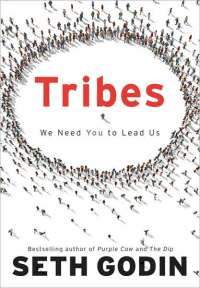Book Review: Tribes
 Thinking about the challenges facing entrepreneurs and solopreneurs recently, I came around to the idea of building groups of followers who look out for your work, ideas, blog posts etc., and recommend you to friends and so on. In some ways these followers could be described as your personal tribe and social media has made the building of these tribes significantly easier. This insight was followed by the mandatory Google search and one of the first entries to pop up was Seth Godin’s ‘Tribes’. Okay, so it was a bit disappointing that someone had gotten there already but at least there was some consolation that it was one of marketing’s more original thinkers of the past decade or so.
Thinking about the challenges facing entrepreneurs and solopreneurs recently, I came around to the idea of building groups of followers who look out for your work, ideas, blog posts etc., and recommend you to friends and so on. In some ways these followers could be described as your personal tribe and social media has made the building of these tribes significantly easier. This insight was followed by the mandatory Google search and one of the first entries to pop up was Seth Godin’s ‘Tribes’. Okay, so it was a bit disappointing that someone had gotten there already but at least there was some consolation that it was one of marketing’s more original thinkers of the past decade or so.
However, the book itself turns out to be a major disappointment. It is a classic Godin stream of consciousness but in this case the same basic idea gets rehashed over and over again in many different ways. All it offers is some simple inductive reasoning where several interesting examples are put forward as evidence of the emergence of certain tribes. But in this lightweight book barely stretching over 100 pages, there is no depth. There are so many basic and yet interesting questions one can ask about tribes. What is and is not a tribe? What is its essential nature? What separates successful from unsuccessful tribes? How are they developed, grown and maintained? If you are looking for the answers to these kinds of questions, I’m afraid you will have to continue looking.
In short, you would be better advised to simply watch Godin’s entertaining and insightful TED talk on the subject as this book adds little extra. In general, his ideas tend to be far stronger than his books which are a little like eating a pizza. They are pretty tasty at the beginning but a couple of hours later you are hungry again.






 John Fahy
John Fahy